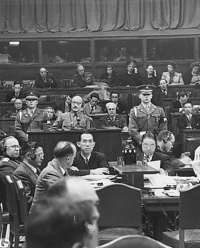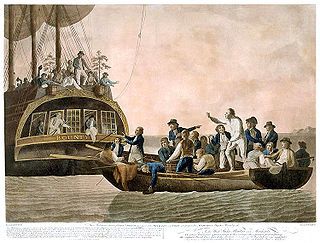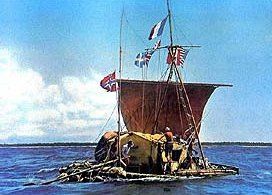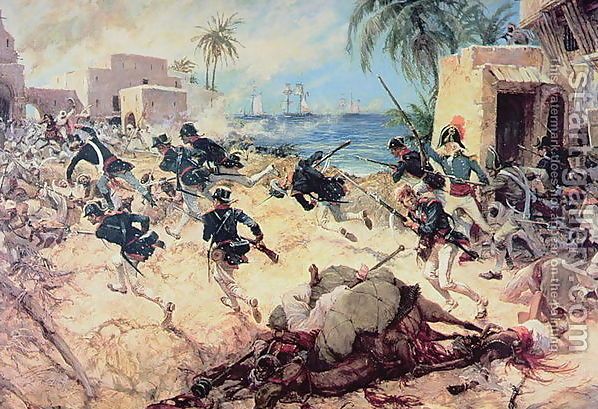The Chernobyl disaster was a nuclear accident that occurred on 26 April 1986 at the Chernobyl Nuclear Power Plant in the Ukrainian SSR (now Ukraine). An explosion and fire released large quantities of radioactive contamination into the atmosphere, which spread over much of Western Russia and Europe. It is considered the worst nuclear power plant accident in history, and is one of only two classified as a level 7 event on the International Nuclear Event Scale (the other being the Fukushima I nuclear incident, which is considered far less serious and has caused no direct deaths). The battle to contain the contamination and avert a greater catastrophe ultimately involved over 500,000 workers and cost an estimated 18 billion rubles, crippling the Soviet economy.
The disaster began during a systems test on 26 April 1986 at reactor number four of the Chernobyl plant, which is near the town of Pripyat. There was a sudden power output surge, and when an emergency shutdown was attempted, a more extreme spike in power output occurred, which led to a reactor vessel rupture and a series of explosions. These events exposed the graphite moderator of the reactor to air, causing it to ignite. The resulting fire sent a plume of highly radioactive smoke fallout into the atmosphere and over an extensive geographical area, including Pripyat. The plume drifted over large parts of the western Soviet Union and Europe. From 1986 to 2000, 350,400 people were evacuated and resettled from the most severely contaminated areas of Belarus, Russia, and Ukraine. According to official post-Soviet data, about 60% of the fallout landed in Belarus.
The accident raised concerns about the safety of the Soviet nuclear power industry, as well as nuclear power in general, slowing its expansion for a number of years and forcing the Soviet government to become less secretive about its procedures.
 (Click on image to enlarge) Russia, Ukraine, and Belarus have been burdened with the continuing and substantial decontamination and health care costs of the Chernobyl accident. Thirty one deaths are directly attributed to the accident, all among the reactor staff and emergency workers. A UNSCEAR report places the total confirmed deaths from radiation at 64 as of 2008. Estimates of the number of deaths potentially resulting from the accident vary enormously: the World Health Organization (WHO) suggest it could reach 4,000; a Greenpeace report puts this figure at 200,000 or more; a Russian publication, Chernobyl, concludes that 985,000 excess deaths occurred between 1986 and 2004 as a result of radioactive contamination.
(Click on image to enlarge) Russia, Ukraine, and Belarus have been burdened with the continuing and substantial decontamination and health care costs of the Chernobyl accident. Thirty one deaths are directly attributed to the accident, all among the reactor staff and emergency workers. A UNSCEAR report places the total confirmed deaths from radiation at 64 as of 2008. Estimates of the number of deaths potentially resulting from the accident vary enormously: the World Health Organization (WHO) suggest it could reach 4,000; a Greenpeace report puts this figure at 200,000 or more; a Russian publication, Chernobyl, concludes that 985,000 excess deaths occurred between 1986 and 2004 as a result of radioactive contamination.
Decommissioning
After the explosion at reactor four, the remaining three reactors at the power plant continued to operate. In 1991, reactor two suffered a major fire, and was subsequently decommissioned. In November 1996, reactor one was shut down, followed by reactor three on December 15, 2000, making good on a promise by Ukrainian president Leonid Kuchma that the entire plant would be closed.
Even after the last reactor shutdown, people continue to work at the Chernobyl plant until reactor units 1, 2, and 3 are totally decommissioned, which is expected to take years. The first stage of decommissioning is the removal of the highly radioactive spent nuclear fuel, which is placed in deep water cooling ponds. However, storage facilities for this are not suitable for long term containment, and those on site do not have the capacity for all the spent fuel from units 1, 2 and 3. A second facility is planned for construction that will use dry storage technology suitable for long term storage and have the required capacity.
Removal of uncontaminated equipment has begun at unit 1 and this work could be complete by 2020-2022.
The remains of reactor unit 4 will remain radioactive for some time. The isotope responsible for the majority of the external gamma radiation dose at the site is Caesium-137 which has a half-life of about 30 years. It is likely that with no further decontamination work the gamma ray dosage at the site will return to background levels in about three hundred years. However, as most of the alpha emitters are longer lived, the soil and many surfaces in and around the plant are likely to be contaminated with transuranic metals such as plutonium and americium, which have much longer half-lives. It is planned that the reactor buildings will be disassembled as soon as it is radiologically safe to do so.




 1947 Thor Heyerdahl and five crew mates set out from Peru on the
1947 Thor Heyerdahl and five crew mates set out from Peru on the  On this day in 1805, Naval Agent to the Barbary States, William Eaton, the former consul to Tunis, led an small expeditionary force of Marines, commanded by First Lieutenant Presley O’Bannon, and Berber mercenaries from Alexandria, across 500 miles to the port of Derna in Tripoli. Supported by US Naval gunfire, the port was captured by the end of the day, overthrowing Yusuf Karamanli, the ruling pasha of Tripoli, who had seized power from his brother, Hamet Karamanli, a pasha who was sympathetic to the United States.
On this day in 1805, Naval Agent to the Barbary States, William Eaton, the former consul to Tunis, led an small expeditionary force of Marines, commanded by First Lieutenant Presley O’Bannon, and Berber mercenaries from Alexandria, across 500 miles to the port of Derna in Tripoli. Supported by US Naval gunfire, the port was captured by the end of the day, overthrowing Yusuf Karamanli, the ruling pasha of Tripoli, who had seized power from his brother, Hamet Karamanli, a pasha who was sympathetic to the United States. On this day in 1986,
On this day in 1986, 
 Welcome to the Stars Hollow Gazette‘s
Welcome to the Stars Hollow Gazette‘s 
Recent Comments